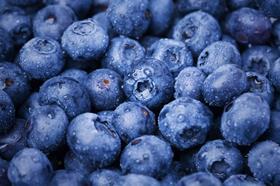
Business as usual for soft fruits is no ordinary business. Another impressive year in 2018 saw value grow a hefty 7.9 per cent, while volumes increased by 3.3 per cent. Despite Brexit, labour shortages, price pressure and assorted risks in the sector, berries are yet to show much trepidation.
The secret to berries’ success is well documented, with improved varieties, a naturally diverse usage, plus the superfood factor and a smattering of new technology such as the NutriBullet, and you have a royal flush for selling fruit.
“While strawberries remain a core part of the category in relation to total sales, blueberries and raspberries have featured with ever-increasing frequency in shoppers’ baskets, with the number of purchase occasions being a key driver of change for the berry category,” says Jo Mumford, business strategy analyst at AG Thames.
“Nearly nine in ten households now buy berries during the course of a year, which continues to show small uplifts as more and more shoppers encounter their benefits. Now during the course of a year the average UK berry shopper purchases 8.4kg and visits the category 21 times, which equates to shoppers picking up one more standard-sized punnet of berries and paying an extra two visits to the berry category versus two years ago.”
The category is not a producer’s nirvana however. Last summer the beginning of the heatwave pushed out a flush crop of strawberries at once, flooding the market. Discounting across supermarkets were widely documented, with some growers struggling to get their crop to market. “Last summer was a tough one for all UK growers. The combination of late start and then a sudden unexpectedly early peak in June put pressure on the market and meant some crop wasn’t sold where it was planned to, which hit seasonal average prices,” says Angus Soft Fruits’ Jill Witheyman.
Blueberries were yet again the standout fruit within the category, growing the most with a 14.3 per cent spend rise in the past 12 months. “There’s no stopping blueberries, they’re overtaking strawberries,” opines Steve Taylor, managing director of berry specialists Winterwood Farms. He says last summer’s UK blueberry season was not a greatone for producers. “Growers across the country were optimistic pre-season, but crops ended up lower than estimated.” He adds that his Polish production sites had the “best year ever in terms of volumes”, with an early season too, managing to pick up orders from the shortfall in UK fruit.
He continues: “Blueberries aren’t doing as well as they were in 2006-07in terms of year-on-year percentage increases, when the popularity really started, but it’s still massively outperforming other fruits.”
Taylor is also focusing his efforts on production outside of Britain following the Brexit vote, with the company withholding investment in its UK production due to uncertainty. Winter supply from its South African sites is developing into a core offering for Winterwood Farms. “South Africa is going to overtake Argentina in two years,” he says. “The last few months of 2018 blueberries outsold strawberries. The UK doesn’t see them as English or connect them to something like Wimbledon, they see blueberries as more like an apple, as something for all year round.”
Montague-Ebbs also says there is further potential to develop the variety during the cold season. “While there is a natural affinity for berries during our summer months, the winter months have still seen an increase in berry consumption, albeit at a much lower level. There is still further opportunity for berries to become a bigger part of autumn/winter consumption with new and imaginative ideas delivered to inspire usage and we are likely to see these themes emerge over the coming months.”



